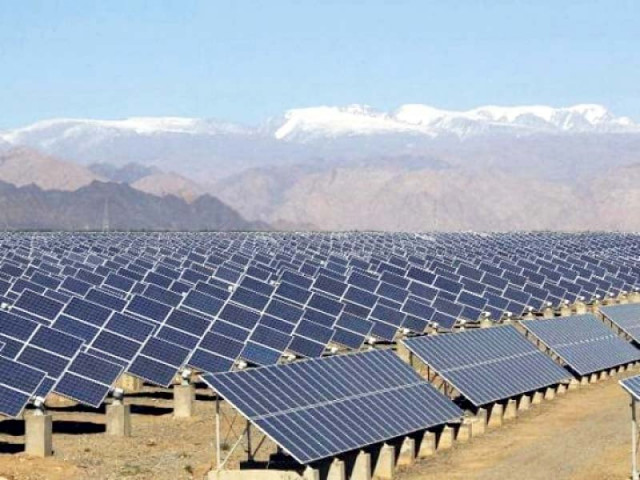‘Five-year plan must include clean energy solutions’
Secretary says challenge is to achieve clean energy mix with more dividends

The SDPI, Planning Commission and Unescap have joined hands to develop models, which can lead to alternative scenarios of Pakistan’s future energy demand and supply needs. PHOTO: FILE
“In Pakistan, power generation alone is not an issue, but also power distribution, transmission and affordability with minimum theft and line losses, which are major challenges and require due attention of the policymakers,” he said.
Chaudhry was addressing the inaugural session of a training workshop titled “Evidence-based policies for sustainable use of energy resources in the Asia-Pacific region”, organised by the Sustainable Development Policy Institute (SDPI) in collaboration with the Ministry of Planning, Development and Reform and the United Nations Economic and Social Commission for Asia and the Pacific (Unescap).
He emphasised that the challenge for the country was to achieve a clean and green energy mix with negligible environmental impact and more economic dividends.
Unescap Chief of Energy Division Michael Williamson said “the choices we all have made in the past to use oil and biomass for power generation now lead to dire consequences in the form of climate change.”
“We have to change our priorities towards the energy mix. For that, there is a need to strengthen capacities of the policymakers in developing evidence-based policy and planning for sustainable use of energy resources at national and regional levels. Pakistan has wonderful opportunities and potential in solar and wind energy,” he said.
SDPI Executive Director Dr Abid Qaiyum Suleri pointed out that the current primary energy mix was dominated by traditional biomass, oil and natural gas with coal, whereas nuclear, hydel and other renewables were playing a limited role.
He said the government, in its recent economic reform package, removed all sorts of taxes and duties on the import of renewable energy products - a positive step forward towards green energy commitment.
The SDPI executive director said the institute was now collaborating with the Energy Research Institute of China for evidence-based research and assessment of the energy-sector challenges faced by Pakistan and the region.
“SDPI continues to extend its research in the energy sector on topics including Sustainable Energy for All (SE4All), Pakistan’s perspective and bioenergy, and sustainability in South Asia,” he added.
SDPI Joint Executive Director Dr Vaqar Ahmed said planning departments of federal and provincial governments were currently in the process of finalising long-term growth strategies where the Planning Commission was also formulating the 12th five-year plan.
As part of the five-year plan, he said, it was important that Pakistan put in place and follow an integrated energy plan. “It is also important to remember that the policies being proposed are based on scientific evidence. For this purpose, the SDPI, Planning Commission and Unescap have joined hands to develop energy planning models, which can develop alternative scenarios of Pakistan’s future energy demand and supply needs,” he added.
These exercises will also forecast investments, which may be requested to meet future energy demand.
Ahmed said such models would also outline how to protect the environment, which could be ensured through the use of cleaner energy fuels. “This exercise will also involve collaboration with the Ministry of Climate Change,” he added.
Published in The Express Tribune, January 31st, 2019.
Like Business on Facebook, follow @TribuneBiz on Twitter to stay informed and join in the conversation.



















COMMENTS
Comments are moderated and generally will be posted if they are on-topic and not abusive.
For more information, please see our Comments FAQ